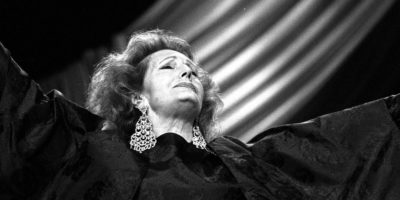Gone but Not Forgotten: Celebrating the Legacies of 20 Comedic Legends
Comedy brings joy and laughter into our lives. Throughout history, iconic comedians have used their humor and wit to entertain millions; even after they are gone, their legendary work lives on.
Their works have played a positive impact to many espensially the upcoming comedian.Let us celebrate 20 comedic greats who may be gone, but will never be forgotten.
1. Robin Williams

Eva Rinaldi, CC BY-SA 2.0, via Wikimedia Commons
Robin Williams brought manic improvisational energy and genius to stand-up comedy and films like Mrs. Doubtfire, Good Will Hunting and Aladdin. His rapid-fire impersonations and observations touched on the absurdities of everyday life with hilarious precision. On stage, Williams would shift seamlessly into different voices and characters, making audiences roar with delight. His warm, childlike spirit came through in roles like the zany alien Mork and the animated genie in Aladdin.
Williams excelled at switching between family-friendly humor and R-rated stand-up. He battled depression and substance abuse issues before his tragic 2014 death. But Williams’ warmth, humor and inspiration endure through his iconic performances that always felt unpredictable and full of joyful surprises.
2. Richard Pryor
Richard Pryor fearlessly drew on his life experiences growing up in a brothel and struggling with addiction to craft provocative, profane comedy that explored racial injustice and other taboo topics. His uncensored albums and concert films like Richard Pryor: Live on the Sunset Strip captured his fluid storytelling, spot-on impressions, and ability to unleash the N-word with precision. Movies like Stir Crazy and Silver Streak showcased Pryor’s charisma and chemistry with Gene Wilder.
Though multiple sclerosis slowed him down physically, Pryor continued performing stand-up and acting until shortly before his 2005 death. Pryor broke barriers as a proudly African-American comic who opened the door for others to tackle thorny social issues through a comedic lens. His honest and biting humor about institutional racism resonates now more than ever.
3. Lucille Ball

Associated Publicity Bureau, 1472 Broadway, N.Y.C. (publisher), Public domain, via Wikimedia Commons
Lucille Ball pioneered television comedy with I Love Lucy. Her exaggerated expressions, side-splitting physical comedy and impeccable timing as the zany housewife Lucy Ricardo formed the blueprint for countless sitcoms. Her real-life marriage to Cuban bandleader Desi Arnaz contributed charming culture clash humor to the show. Ball was willing to look ridiculous and underscore the foibles of vanity to get a laugh.
Off-screen, she was a shrewd perfectionist and businesswoman who founded Desilu Productions. Ball paved the way for future generations of female comics by showing that women could be brazenly funny and appeal to mass audiences. Even after her death in 1989, Ball’s mastery of physical shtick and fearless, funny spirit continues charming old and new fans alike.
4. George Carlin
George Carlin unleashed taboo-busting stand-up sets and social commentary that bitingly skewered cultural hypocrisy and pretense. Class Clown and FM & AM took on politics, religion and censorship with searing wit and intellectual depth. His “Seven Dirty Words” routine challenging indecency laws was groundbreaking and resulted in a Supreme Court battle. Carlin evolved from a more straight-laced comic in the 60s to a bearded provocateur in the 70s and beyond.
He also succeeded in film and TV roles like Bill & Ted’s Excellent Adventure and as Mr. Conductor on Shining Time Station. Carlin continued releasing albums and HBO specials skewering cultural absurdity right up until his 2008 death. His trenchant observations about language, religion and politics remain painfully timely.
5. Joan Rivers
Joan Rivers bulldozed through comedy’s gender barriers with her take-no-prisoners style and refusal to back down. She turned her caustic, self-deprecating humor toward topics like plastic surgery, celebrities and the female experience in male-dominated industries. Rivers’ brash persona and raspy voice dished out lightning-fast insults and boasted about steamy escapades. She seemed to delight in shocking viewers, hosting risqué late night talk shows and skewering red carpet fashion.
Rivers mentored fellow boundary-breaking female comics and wrote candid bestselling books detailing her highs and lows. She continued performing stand-up worldwide until complications during minor surgery led to her death in 2014. But Rivers’ legacy as a pioneering comic who challenged sexism with ruthless wit lives on.
6. John Belushi

National Archives and Records Administration, Public domain, via Wikimedia Commons
John Belushi careened to fame on Saturday Night Live with his outrageous physical antics and manic character creations like the samurai deli worker and Joe Cocker impressionist. Belushi’s brave willingness to make a total fool of himself was revolutionary. He embodied anarchy and irreverence in Animal House’s Bluto as he chugged whiskey and destroyed cafeteria buffet tables and toga parties.
In The Blues Brothers, Belushi and Dan Aykroyd crafted a unique comedy-music act that highlighted Belushi’s unhinged energy and skill at physical humor. Off-screen, Belushi’s partying and drug use took a toll before eventually leading to his shocking 1982 overdose death at the Chateau Marmont in Hollywood. Though his meteoric rise was cut short tragically, Belushi’s courage to be completely unhinged in search of the biggest laugh changed comedy forever.
7. Gilda Radner
Gilda Radner shone as an original cast member on Saturday Night Live, creating such enduring characters as Roseanne Roseannadanna and Emily Litella. As Baba Wawa, her exaggerated takeoff on Barbara Walters, Radner gleefully skewered pomposity by mangling words and smugly grilling guests. In sketches like “Nerd” girl Lisa Loopner, Radner mocked stereotypes and reinforced that female comics could be bold and ridiculous.
Diagnosed with ovarian cancer, Radner continued performing while undergoing treatment and revealed her private struggle in her memoir “It’s Always Something.” Her final TV appearance came during the 1988 Emmy Awards, where she received a standing ovation. Radner uplifted audiences with her bubbly spirit and characters that especially empowered other women to embrace their quirks and realize their comedic potential.
8. Redd Foxx

Coast Artists Inc. (management); photographer: John E. Reed, Hollywood., Public domain, via Wikimedia Commons
Redd Foxx broke comedy color barriers with his raunchy “party records” and as the cantankerous Fred Sanford on the sitcom Sanford and Son. The gravel-voiced comedian specialized in X-rated humor that contributed to his meteoric rise. He traded insult barbs with co-star Demond Wilson, with the duo becoming an unlikely hit from 1972-1977. Foxx openly discussed race and poked fun at cultural differences before it was widely acceptable.
Controversy occasionally dogged him, from his explicit recordings to tax issues later in life. But Foxx continued touring and appearing in films like Harlem Nights before collapsing on set during The Royal Family in (1991) ending his trailblazing career. From nightclubs to primetime TV, Foxx’s gleefully profane storytelling style spoke to human weaknesses and foibles that united, rather than divided, his broad audience.
9. Phyllis Diller
Phyllis Diller bashed domesticity and cookie-cutter standards of femininity with her flamboyant persona and self-deprecating zingers about her fictitious husband “Fang.” Wild outfits, exaggerated makeup with visible lipstick extending beyond her mouth, and cackling laugh defined her look and underscored the absurdity of gender roles. Diller starred in films alongside Bob Hope and as the Monster’s Mate in Mad Monster Party. She mentored fellow female comedy pioneers like Joan Rivers and inspired funny women to proudly embrace their quirks.
Even amid disabilities and illnesses later in life, Diller continued performing stand-up into her 90s, poking fun at herself rather than quietly fading away. She broke barriers simply by virtue of forging her own path at a time when society offered narrow options for women. Right up until her death in 2012, Diller demonstrated the power of laughter in breaking down limiting expectations.
10. Rodney Dangerfield

Press photo, photographer unknown, Public domain, via Wikimedia Commons
Rodney Dangerfield “got no respect” despite killer one-liners about his unlucky lot in life and ugly looks. His signature collar-tugging and knee-slapping physicality complemented a masterful deadpan delivery. Dangerfield projected an amusing mix of confidence and self-hatred, an underdog who expected defeat but soldiered on anyway. Movies like Caddyshack, Easy Money and Back to School extended Dangerfield’s popularity, casting him as a lovable zero forced into playing the hero.
On The Dean Martin Celebrity Roasts, Dangerfield traded barbs with fellow comics and remained the butt of jokes. He continued wisecracking about lack of respect and sexlessness until his 2004 death. Dangerfield’s ubiquitous “no respect” catchphrase helps fans humorously cope with life’s slights and humiliations.
11. Don Rickles
Don Rickles skewered audiences with sledgehammer insult humor that seemed refreshingly honest in exposing human vanity and weakness. His caustic barbs about looks, race, sexuality and ethnicity earned him the nickname “Mr. Warmth” and reputation as a comic who would say anything for a laugh. Talk show visits where Rickles ribbed Johnny Carson and Dean Martin cemented his outrageous persona. He roasted the likes of Frank Sinatra and diversified with voiceover work in children’s films.
Rickles occasionally pushed boundaries too far with slurs, but also developed a warm rapport with the targets he mocked. Though he mellowed his insults later in life, Rickles’ merciless wit zinged audiences who appreciated his brutal honesty and exposure of pretense. He demonstrated comedy’s power to help people laugh at harsh truths.
12. Flip Wilson

NBC Television, Public domain, via Wikimedia Commons
Flip Wilson broke 1970s variety show barriers as the first successful black host. Outrageous characters like the sassy Geraldine Jones (“The devil made me do it!”) and shady Reverend Leroy showcased Wilson’s verbal and physical comedy. He moved smoothly between impressions of African-American icons like Sammy Davis Jr. to parodies of president Richard Nixon. Wilson introduced memorable catchphrases while also telling humorous stories about growing up poor that allowed audiences of all races to connect.
Despite personal setbacks with substance abuse, Flip Wilson headlined NBC’s hip sketch comedy from (1970-1974 )before refocusing on stand-up. Syndication allowed his groundbreaking humor to find new generations of fans. At a volatile time, Wilson used laughter to bridge cultural and racial divides.
13. Bob Hope
Bob Hope entertained troops overseas through USO shows and headlined the Oscars more than any other host, connecting effortlessly with American audiences for over 60 years. His rapid-fire quips, topical references and physical mirth built a bridge from vaudeville to modern television. Hope’s cheeky persona contrasted his shy, modest offstage presence. Movies like the Road series with frequent costar Bing Crosby capitalized on Hope’s breezy charm.
However, changing cultural times made him seem stale to later generations. Racist jokes and support for military action tarnished his name among young audiences. But Hope’s legacy as a comedy ambassador who brought punchy, squeaky-clean humor to the masses remains indelible. His classic punchlines still inspire laughs among longtime fans.
14. John Candy

Mike F. Campbell, CC BY 2.5, via Wikimedia Commons
John Candy exuded heartwarming goofiness and human vulnerability in comedic films ranging from Splash to Planes, Trains and Automobiles. The rotund Canadian excelled at lovable underdog roles, like awkward shower ring salesman Del Griffith opposite the uptight Steve Martin. Candy often collaborated with fellow SCTV performers like Eugene Levy and Catherine O’Hara, whose improvisational chemistry shined. Candy proudly showcased his girth alongside other larger-than-life comics like John Belushi and Chris Farley.
Beneath Candy’s clumsy personas lay sensitivity and nuance. In JFK, he movingly played a skeptical attorney unwilling to accept official narratives. Candy’s shocking 1994 heart attack cut short his career peak. His expressive performances as flawed but big-hearted characters live on as testaments to both his comedic talent and compassion.
15. Madeline Kahn
Madeline Kahn stole scenes with melodramatic flair and operatic improv skills in comedies ranging from Young Frankenstein to Blazing Saddles. As Marlene Dietrich-esque cabaret singer Lili Von Shtupp, she milked her ridiculous German accent and exaggerated sexuality. Kahn masterfully mocked artistic pretentiousness as the nymphy actress Lily Benson in Paper Moon. Her mannered bravado complemented broader comics like Gene Wilder and the Marx Brothers, yet could also stand alone.
Kahn’s colorful film roles slowed in the 80s and 90s, but she continued shining on stage in musicals and Shakespearean works that highlighted her improvisational flair. Though ovarian cancer tragically ended Kahn’s career too soon in 1999, her fearless command of physical comedy and melodrama remains unmatched. No one could shriek or faint quite like her.
16. Chris Farley
Chris Farley channeled loud, goofy, physical humor from Saturday Night Live skits to movies like Tommy Boy and Black Sheep. His shy, vulnerable offstage persona belied the brazen risk-taking and slapstick his improv background inspired. Farley followed in John Belushi’s footsteps as a lovable, destructive force of nature who pulled no comedic punches. Like Belushi, he struggled with the temptations of fame, stardom and drugs.
Beneath Farley’s fat suit antics lay real gifts for subtle humor that shown through in later films like Almost Heroes. But his hard-partying lifestyle proved self-destructive, leading to a fatal 1997 overdose at 33. Though his career ended tragically, Farley’s boundless spirit, fearless stage dives and commitment to wringing the biggest laugh lives on in countless fans who treasure his humor.
17. Bernie Mac

J. Corey Griffin, CC BY-SA 3.0, via Wikimedia Commons
Bernie Mac added defiant observational edge to stand-up and The Bernie Mac Show with his sharp tongue and unfiltered views. Mac earned devoted fans by keeping things uncompromisingly real about his life and cultural differences. His loud delivery, exaggerated expressions and eye rolls underscored punchy observations about family dynamics and raising his sister’s kids. Movies like the Ocean’s Eleven trilogy allowed Mac to develop chemistry with other bold comics like Chris Rock.
Mac shaped raw material from his life into punchlines that resonated universally, even if some considered him too controversial. The comedian suffered from sarcoidosis before his sudden 2008 death at 50, but his pointed voice on parenting and society resonates now more than ever. Bernie Mac’s lasting legacy is saying exactly what he thought and making no apologies.
18. Gene Wilder
Gene Wilder masterfully vacillated between comedic madness and heartfelt sincerity in classics like Young Frankenstein and Willy Wonka and the Chocolate Factory. As frizzy-haired Dr. Frankenstein, he electrified scenes with frantic rants and dramatic pauses. Wilder’s collaborations with director Mel Brooks showcased his gift for nuanced parody.
As Willy Wonka, Wilder projected an enigmatic warmth beneath the character’s apparent cynicism. Real-life romantic partner Gilda Radner provided further chemistry in their joint films.
Though Wilder continued shining in supporting roles through the 1990s, he faded from public life following his 1999 Alzheimer’s diagnosis. Wilder penned candid memoirs and advocated for cancer research after Radner’s death from ovarian cancer. His layered presence and ability to ground absurdity with humanity set Wilder apart as a true comedic treasure.
19. Tim Conway
Tim Conway unleashed chaos and improvised anarchy into Carol Burnett’s variety show through characters like the bumbling Old Man and accident-prone dentist. His jittery physicality and knack for cracking up fellow performers broke all rules of composed sketch comedy decorum. Movies like The Apple Dumpling Gang let Conway pair physical goofiness with co-star Don Knotts’ nervous energy. Conway later voiced goofy characters on SpongeBob Squarepants and other children’s cartoons.
His sense of mischief brought welcomed levity to sitcom guest spots on shows like 30 Rock, where his doddering antics exasperated stars trying not to laugh. Conway’s improv background made him a genius at playing clueless characters always teetering toward disaster. Though dementia impacted his final years before his 2019 death, Conway’s playful troublemaking spirit endures as an inspiration to future comedians.
20. Harold Ramis
Harold Ramis quietly built some of the greatest comedies of the 1980s and 90s through his dexterity as a writer, director and supportive co-star. Ramis’ scripts for Animal House, Caddyshack and Groundhog Day mixed philosophical depth with raucous humor. His deadpan sarcasm as Egon in Ghostbusters and caring father in Knocked Up endeared him to fans. Ramis knew how to get the best from headlining comics like Bill Murray and paired perfectly with their improvisational genius.
Health struggles impacted Ramis’ later output, but he remained humble and insightful about his career. His impact behind the scenes was monumental in shaping acclaimed comedies that blended sophistication with belly laughs. Ramis proved that comedy shouldn’t just aim low for laughs, but also touch on deeper human truths.
21. Phil Hartman
Phil Hartman built his reputation as the versatile glue holding Saturday Night Live sketches together. His gift for disappearing into roles and nailing impressions buoyed countless skits. As oblivious lounge lizard Bill Clinton, Hartman delivered a defining presidential parody. He seamlessly transitioned into beloved sitcom characters on NewsRadio and The Simpsons. Hartman radiated warmth and likability even when playing villains or narcissists.
Tragically, in 1998 his wife murdered him while he slept, robbing the world of his immense potential. Hartman’s mastery at adapting to any comedic situation and egoless commitment to the ensemble rather than the spotlight allowed him to inhabit characters with full authenticity. His steadying, adaptable presence is missed in comedy, but still delights audiences through reruns showcasing his diverse talents.
Though the comedians have passed on, their contributions broke barriers and defined comedy across eras from vaudeville to modern times. They inspired generations of comedians and remain cultural icons whose humor and creativity still delight audiences today. Each icon expanded the definition and possibilities of comedy during their unforgettable careers.
Planning a trip to Paris ? Get ready !
These are Amazon’s best-selling travel products that you may need for coming to Paris.
Bookstore
- The best travel book : Rick Steves – Paris 2023 – Learn more here
- Fodor’s Paris 2024 – Learn more here
Travel Gear
- Venture Pal Lightweight Backpack – Learn more here
- Samsonite Winfield 2 28″ Luggage – Learn more here
- Swig Savvy’s Stainless Steel Insulated Water Bottle – Learn more here
Check Amazon’s best-seller list for the most popular travel accessories. We sometimes read this list just to find out what new travel products people are buying.










